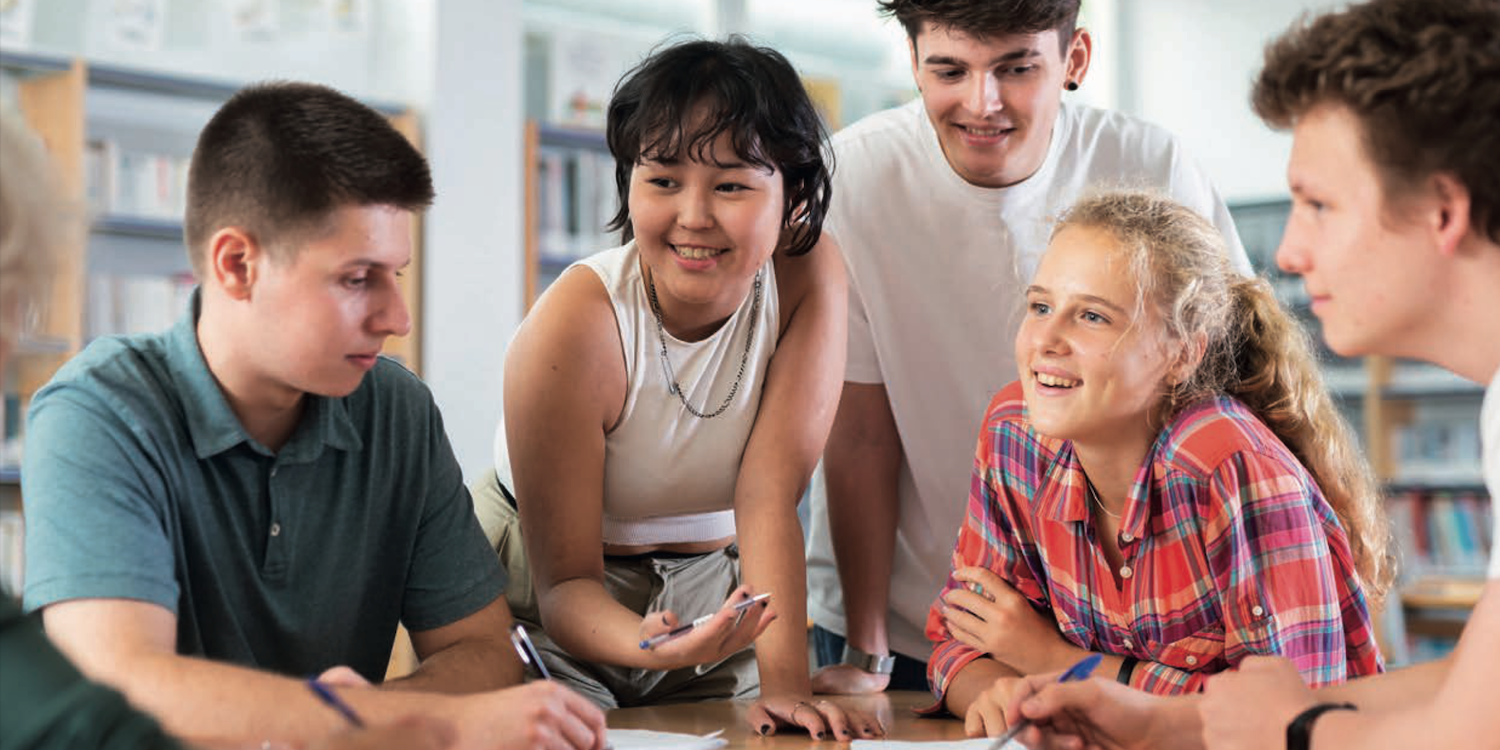Communication Skills: 10 Habits for Teaching Oracy in Every Classroom

Persona Education co-founder Dr Leila Khouja Walker offers helpful ideas to support teaching oracy in the classroom, and across the school. She provides ten practical habits for any teacher to adopt, based on insights from two schools in the UK with whole-school oracy practices that are proving effective. Strategies range from modelling oracy to active listening to public speaking, and everything in between.
13-May-24
By Dr Leila Khouja Walker, Chief Product Officer & Co-founder
Effective oracy skills can help students to express themselves clearly, engage in meaningful conversations, and succeed in various social and professional contexts.
Oracy is “not a subject but a condition of learning in all subjects; not merely a skill but the essential instrument in the humanising of the species.” (Wilkinson, 1970). More than 50 years since Andrew Wilkinson first coined the phrase “oracy”, a seemingly endless number of articles and papers have been churned out, with huge stakes being attached to those educators who have adopted this pedagogy as a key component of their teaching toolkit.
“Taking oracy education seriously is perhaps the most powerful thing a teacher can do to positively impact the life chances of their pupils.” (Oracy Cambridge, 2020).
But as with all publications on this subject (including this one) – the most important aspect is how we support the wider education community to be better informed on such a highly researched pedagogy while not leaving them drowning in more theory and research data.
With this in mind, here are ten strategies for teaching oracy. The advice includes insights from two schools – Barrowford Primary School in Lancashire (UK) and Halifax Academy in West Yorkshire (UK) – which have adopted whole-school oracy practices that are proving effective, especially for the most disadvantaged pupils. Both schools work with the oracy education charity Voice 21.
The quotes below are from Rachel Tomlinson (Headteacher) and Karl Cross (Assistant Headteacher) at Barrowford, and Dani Burns (Assistant Headteacher) at Halifax.
1. Set clear objectives

What do you want your students to achieve? Consider oracy activities such as improved public speaking, better conversation skills, or enhanced debating skills.
Barrowford Primary: “Often, it’s about kids communicating what they know and giving them an opportunity to do that really well – to build up those social and emotional skills so that children can access the learning.”
2. Model oracy

Be a role model for effective oral communication. Demonstrate good listening, appropriate tone and intonation and positive body language.
Halifax Academy: “Give teachers a toolkit so they can choose to demonstrate a range of oracy skills and approaches.”
Barrowford Primary: “One of the big things that we found was to bring some physicality to language as well. We'll explore how our voices represent that word – and our bodies help in creating actions.”
3. Create an inclusive and safe environment

Create a space where students feel comfortable expressing themselves with no judgement. Encourage open dialogue and active participation.
Halifax Academy: “Make sure that structures and scaffolds are in place in the classrooms, so every student becomes more confident.”
Barrowford Primary: “We are a sanction-free school, so voice is critical to enable structured and safe conversations.”
4. Deepen vocabulary

Encourage students to read widely to expand their vocabulary and language skills. Discuss nuances of language and its impact on how we communicate and are heard.
Barrowford Primary: “We address poverty through vocabulary. Our pupils don't have the experiences that allow them to develop a wider vocabulary.”
5. Active listening skills

Teach students to become active listeners, using eye-contact, nodding and providing verbal and non-verbal cues to show they are engaged in the conversation.
Halifax Academy: “We value listening as much as speaking – valuing every voice. We put structures in place to make our classrooms inclusive.”
Barrowford Primary: “Sometimes we may not have something to say, but that’s okay, it’s okay to just listen, to be a compassionate listener.”
6. Structured discussions

Provide students with clear guidelines to support their engagement in discussions, debates and group activities. These guidelines may include activities such as taking turns, building on other’s ideas, and disagreeing respectfully.
Halifax Academy: “Scaffold and structure lessons in such a way that there's a dialogue.”
Barrowford Primary: “We have embedded with the children an understanding of good oracy through discussion. What does good discussion look like and what are the different talk roles?”
7. Assessment

Provide constructive feedback on students’ speaking and listening skills. Encourage self-assessment and reflection, asking students to evaluate their own performance and identify areas for improvement. Help them to develop a growth mindset around their oracy skills.
Halifax Academy: “It takes time and needs reflection – it’s subtle.”
8. Public speaking practice

Support students to deliver presentations or take part in debates. Ask students to suggest topics they feel most confident and comfortable with to start their practice.
Halifax Academy: “We have Talk Tuesdays – an idea from Voice 21, where all lessons start with a talk-based task.”
9. Cultural awareness

Discuss with your students how cultural differences can impact their own and other people’s communication and encourage students to be respectful of diverse perspectives.
Barrowford Primary: “The golden thread that goes through our curriculum in the widest sense is about belonging – children seeing themselves in our curriculum, but also seeing other people in our curriculum as well; reflecting the whole world.”
10. Continuous improvement

Encourage students to continue working on their communication skills beyond the classroom setting. Oracy is a life-long skill.
Barrowford Primary: “Oracy is not just an add-on to the curriculum.”
Halifax Academy: “Sometimes talk is messy but this is just good teaching! We want them to have a voice to change the world.”
Final thoughts

It is important to continuously adapt your approach to the specific needs and abilities of your students (and teachers). By providing personalised support, you can make a significant difference in their oracy confidence.
Communication Skills is one of the Skillsets students age 13-19 learn to improve in our online personal development platform Persona Life Skills. These include: Active Listening; Processing Information; Speaking Formally; Speaking Informally; Writing Formally; Writing Informally. One of the main outcomes students report after using the platform is increased self-confidence – and communication skills play a major role in that.
You can find out more about Persona Life Skills here. Or get in touch – we'd love to tell you more!
A version of this article was first published in SecEd.
If you enjoyed this article you might also like:
White paper: Guide to student personal development in secondary schools and colleges
Life Skills in the Curriculum – 10 Habits for Developing Social-Emotional Skills in Every Classroom
School communities – Relationships and the classroom
Persona Education offers free access to its Persona Life Skills online learning platform for secondary schools and colleges interested in developing their pupils’ social-emotional life skills, to boost wellbeing, academic success and employability.
About the author: Dr Leila Khouja Walker has been working in the education sector for 25 years. An ex-teacher and pastoral deputy head, she is now a respected edtech and pedagogy thought leader, leading development of the personality insights powered personal development platform Persona Life Skills, at the Bristol based edtech company Persona Education Ltd. persona-life.com









